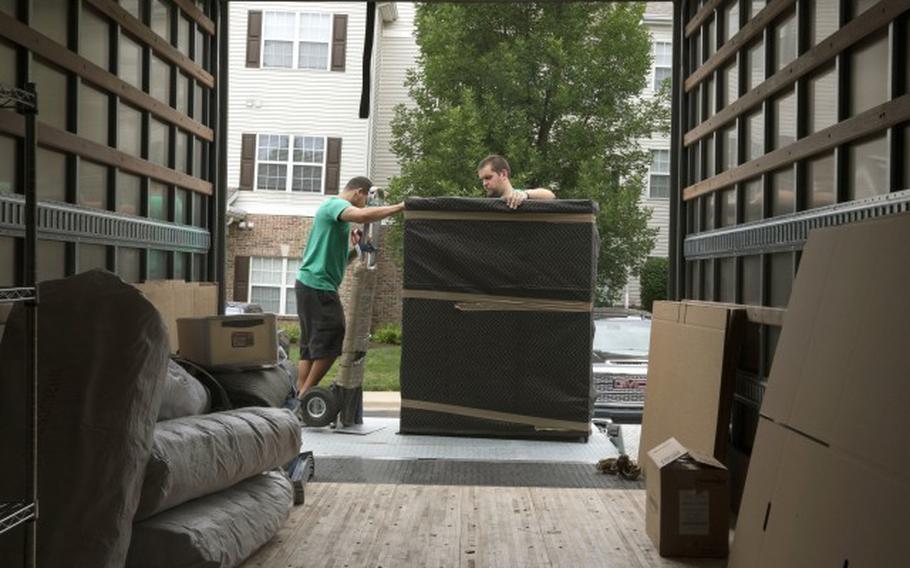
A Marine Corps family is silhouetted on a beach. According to a new Defense Department survey, more than half of service member spouses are unhappy with military life due to frustrations over frequent moves and difficulties finding employment. (Alex Fairchild/U.S. Marine Corps)
More than half of spouses are unhappy with military life, continuing a downward trend in recent years related to family frustrations over quality-of-life issues such as frequent moves and employment difficulties, according to a new Defense Department survey.
The DOD 2024 active-duty spouse survey, conducted roughly every two years, examined the opinions and attitudes of spouses on a range of issues.
The findings, released Tuesday, showed that one in three spouses would prefer that their family separate from the military.
The largest source of dissatisfaction was related to permanent change of station moves.
“The biggest factor related to unhappiness with a PCS is the problem military spouses face in finding employment after the move,” DOD said in a statement Tuesday.
About 49% of military spouses who experienced a PCS move said finding employment proved to be a “large” or “very large” problem, according to the survey.
Loss of income and non-reimbursable moving costs also were top concerns.
The National Military Family Association, which analyzed the survey results, said Tuesday that the findings showed “a record-breaking number” of military spouses who favor leaving the military.

Movers pack household goods at Fort Campbell, Ky., in 2022. The largest source of dissatisfaction among military spouses was related to frequent military moves, known as permanent change of station relocations, an annual Defense Department survey found. (U.S. Army)
“That number matters,” the organization said in a statement. “Spousal support has long been recognized as a leading factor in a service member’s decision to stay or leave military service. When families are unhappy, retention suffers, and ultimately, so does readiness on a national level.”
Tim Dill, the acting deputy undersecretary of defense for personnel and readiness, said DOD is looking at ways to ease the burden that comes with frequent military moves.
“We’re taking a very careful look at when PCS moves are truly needed for the military; and where a PCS move is not critical for the military, we need to be looking at whether or not that’s a move that even needs to happen because we understand geographic stability is a big factor for the household satisfaction,” Dill said in a statement.
The overall decline in military life satisfaction was only slight between 2021 (49% satisfied) and 2024 (48% satisfied), according to the survey findings.
However, satisfaction with military life among spouses has been trending downward since 2012, NMFA said.
“Most strikingly, spouses who reported dissatisfaction with military life were six times more likely to favor their service members leaving active duty,” NMFA said. “That makes one thing clear: military spouses may hold the key to sustaining our all-volunteer force.”
Across pay grades, only junior enlisted spouses showed an increase in satisfaction with the military way of life, up to 45% from 39% in 2021, according to the findings. Senior officer spouse satisfaction levels were 60% in 2024, down from 66% in 2021.
Financial considerations also factored into overall dissatisfaction.
Sixty percent of spouses described their financial situation as comfortable, but that was a 10-percentage point drop from 2019, and lower than nearly all years going back to 2006, the survey said.